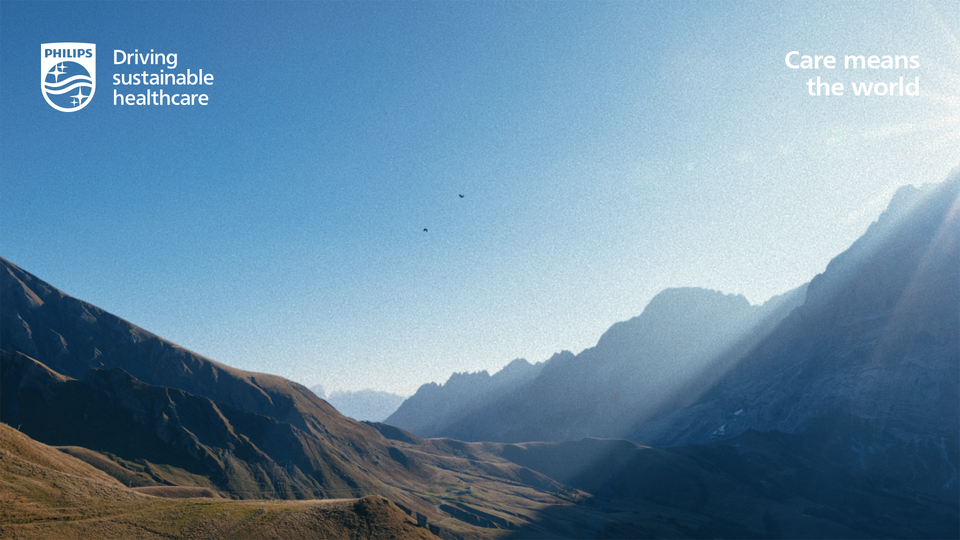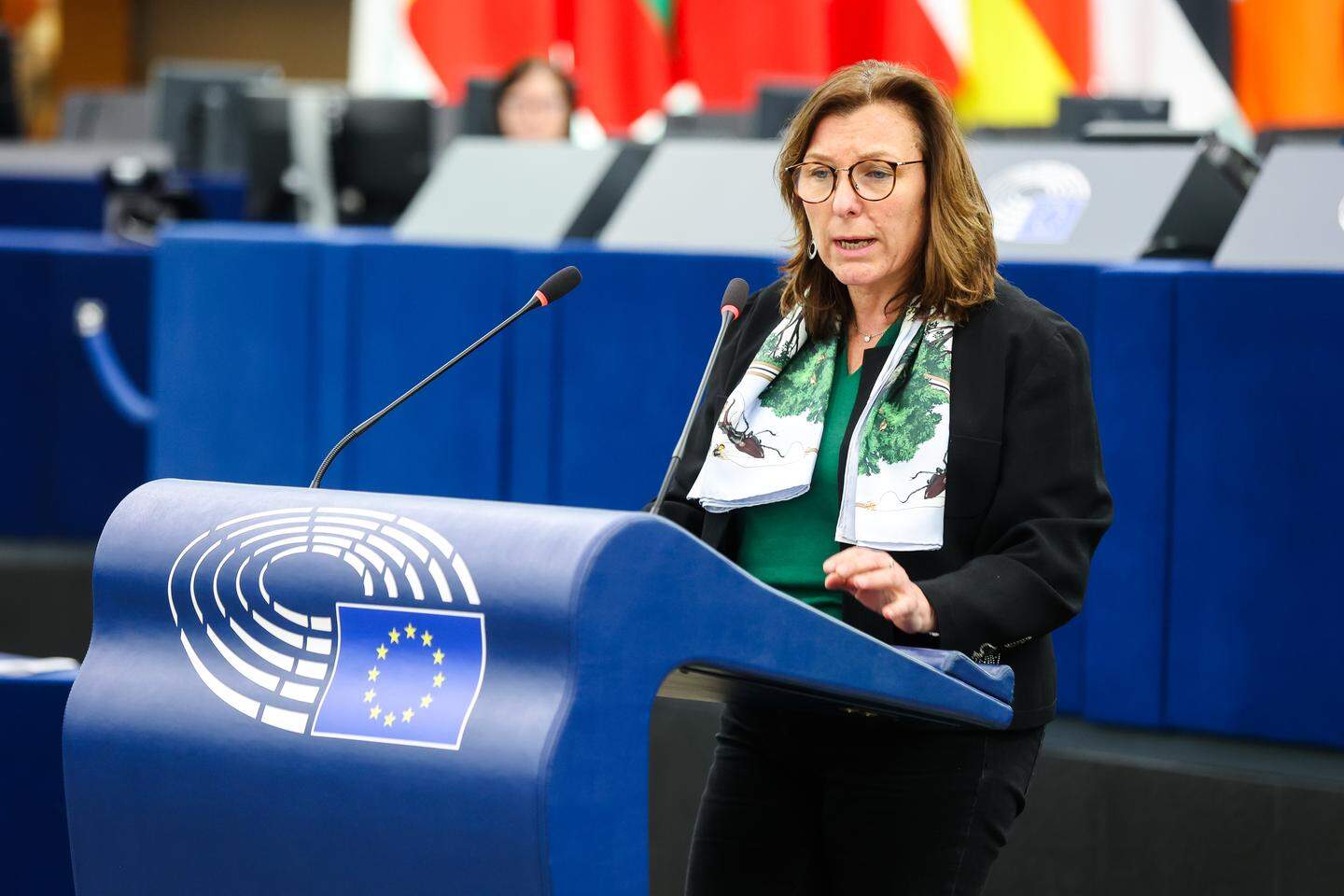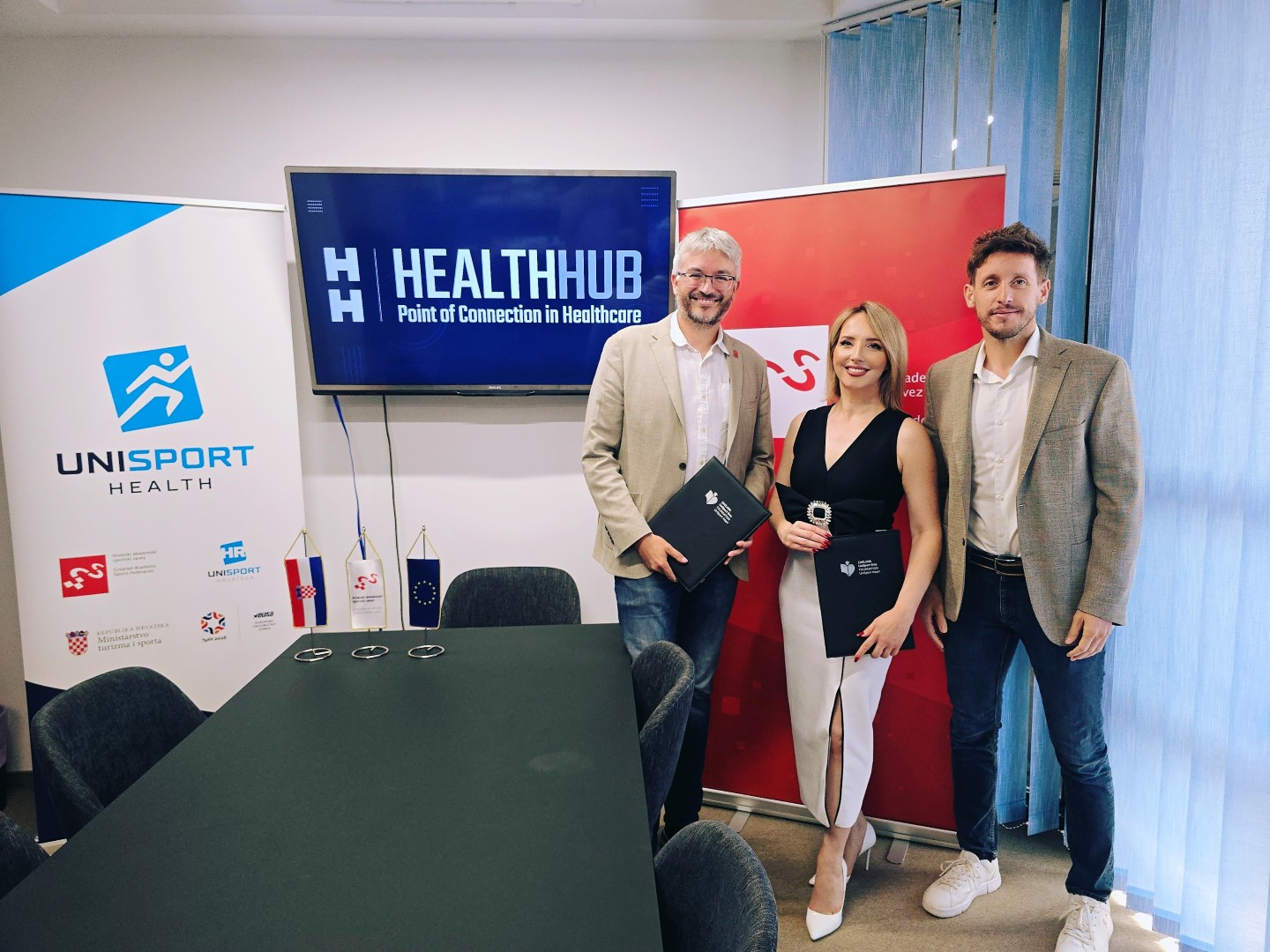Health Hub’s Trend Report 2024- Jens Jakob Gustmann (Philips): “If healthcare were a country, it would be the world’s fifth-largest emitter of CO₂. ESG leadership brings positive impact!”
ealth Hub, as a unique think tank for health in the region, organized the traditional Trend Report Brunch this year with the networking of stakeholders of the health ecosystem and ambassadors of a healthy life, in order to present innovations and trends in health and health care.
After participating in the European Health Forum in Gastein, following all global trends from the World Economic Forum (Davos Agenda 2024), published annual reports of McKinsey, PwC, Deloitte and publications of the most relevant global think tank platforms for health, Health Hub and partners presented the trends, initiatives and visions of the Croatian healthcare ecosystem that will surely mark this year or should be given the wind at their backs for the fastest possible implementation for the benefit of our patients and communities.
Inspired by his ongoing commitment to be an advocate of “Care Means the World” mission, and as a Zone Leader for Central and Eastern Europe in Philips, we invited Mr. Jens-Jakob Gustmann to give an overview of green healthcare concept as one of the most important healthcare trends, not only in 2024., but so! beyond, for generations to come …
“It’s a staggering fact but if healthcare were a country, it would be the world’s fifth-largest emitter of CO₂. This clearly shows that as an industry, we must focus on providing sustainable healthcare systems that can deliver care for more people in more places. All while reducing our impact on the natural world, without compromising patient care. I’m proud to see the positive impact of our ESG leadership at Philips and our role in working with others across the industry to accelerate sustainable healthcare. The interactive journey through the sustainability station was so impactful and really brought home to me the opportunity that we have to drive systemic and sustainable change. As we look to the future, the link between human and environmental health will become increasingly connected. That’s why our new sustainability brand platform, Care Means the World, really resonates with me. Let’s all play our part to ensure both people and planet stay healthy for generations to come...”, highlighted Mr. Gustmann on his LinkedIn profile recently.
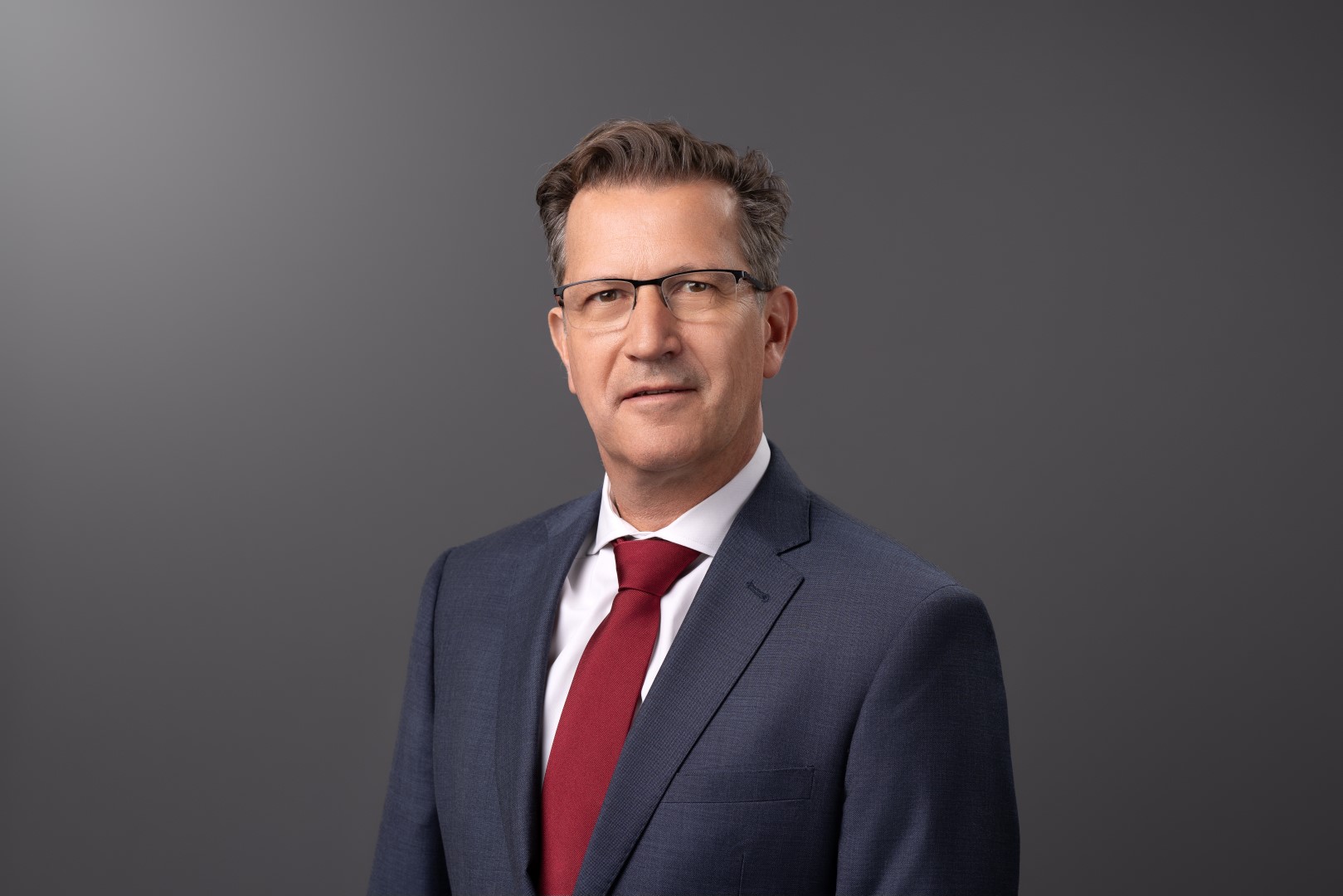
Jens-Jakob Gustmann, Zone Leader for Central and Eastern Europe, Philips
What do we need to do in order to transform healthcare to think “green and sustainable” and mitigate the negative impact of the healthcare system on the environment, from your perspective?
At Philips, we see huge opportunities to make a difference through innovation, design and sustainability – helping more healthcare providers help more patients, in a sustainable way, and empowering more people to take care of their health and well-being. To achieve this transformation, we need to integrate sustainability into every aspect of healthcare delivery. From the eco-design of our products, to implementing energy-efficient practices, to reducing waste generation through recyclable materials and sustainable packaging, to promoting green public procurement standards.
As we look to the future, the link between human and environmental health will become increasingly connected. Simply put into words: care means the world for us!
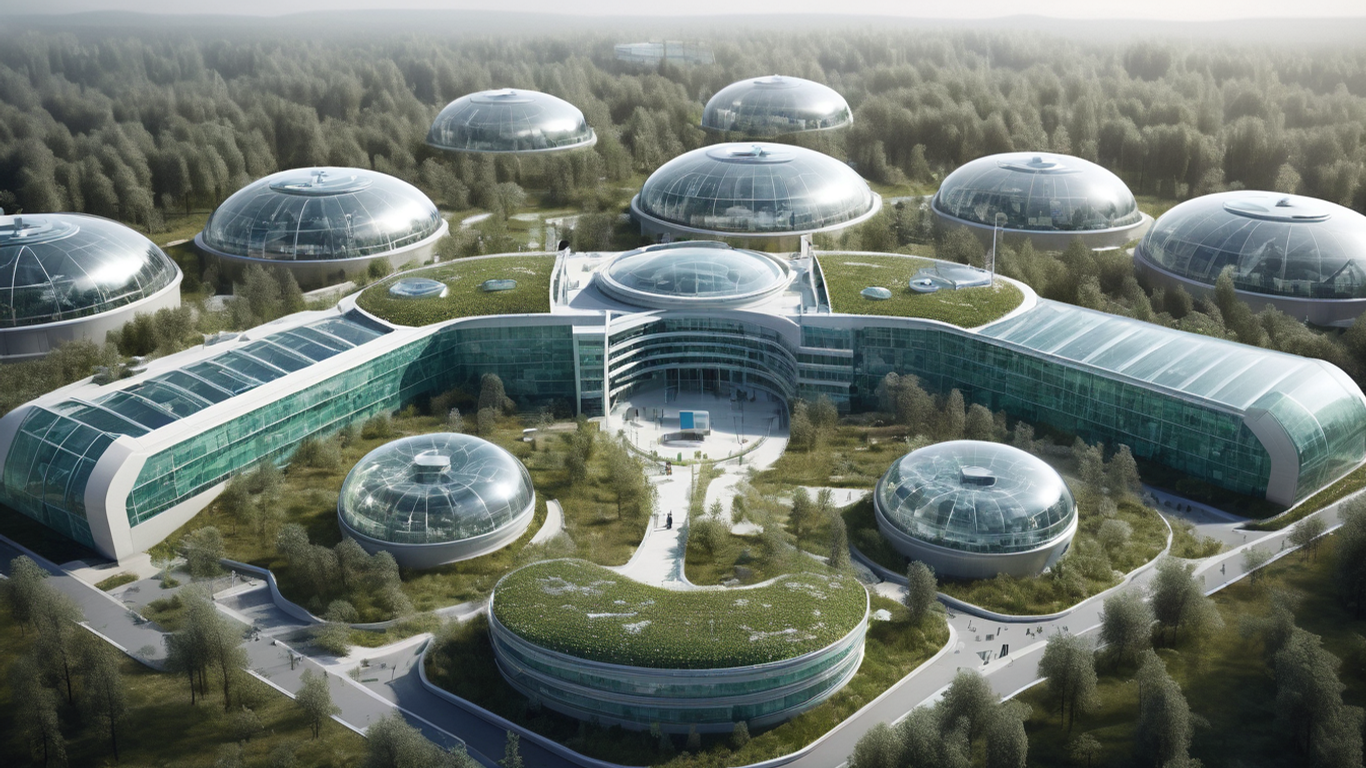
Image designed by AI, Green hospital of the future
At numerous events dedicated to sustainability, healthcare is most often bypassed, showing that awareness of all the advantages that the “green mindset” of healthcare institutions offers to patients, institutions, the healthcare system, the state and the entire planet is still insufficiently developed.
How can we tackle this challenge?
It’s a staggering fact, but if healthcare were a country, it would be the world’s fifth-largest emitter of CO₂. This clearly shows that as an industry, we must focus on providing sustainable healthcare systems that can deliver care for more people in more places. All while reducing our impact on the natural world, without compromising patient care.
For example, healthcare emissions include energy consumption in hospitals, transportation of patients and medical supplies, manufacturing and disposal of medical equipment. The healthcare sector’s reliance on energy-intensive processes, such as heating, cooling, and sterilization, contributes to its substantial carbon emissions. We therefore need a collective effort to approach this: from industry leaders, policymakers, healthcare professionals, and the public, everyone should play its part.
We, at Philips, take very seriously our role as a medical technology provider. We develop innovative solutions and sustainable technologies to support hospitals in their transition to greener practices. These include cutting edge technology, energy-efficient medical devices, for example our Blue Seal MR that opens the door for a helium-free reality, digital health platforms for remote monitoring and telehealth or green public procurement guidelines.

According to some data, one hospital bed generates approximately 13 kg of waste every day. All this waste is removed outside the hospital building.
This includes not only traditional waste, but also medical, radioactive and chemical waste, which requires systematic and organized thinking about environmentally conscious healthcare.
How did you address the need for environmentally conscious healthcare?
We recognize the threat of climate change and the effects it can have on human health. We are committed to collaborating with our customers and suppliers to reduce CO2 emissions across our value chain in line with a 1.5 °C global warming scenario.
For that, we are maximizing the lifetime value of our products and solutions, while minimizing the use of new materials and resources and eliminating waste. We do this through innovative service models, smart digital solutions, and product take-back, refurbishment and recycling. Also, we embed sustainability in our innovation processes, by all aspects of product development and eco-design, including recyclability and chemicals management.

Image designed by AI, Concept of green healthcare policy making process
The issue of valorizing “green and sustainable” technologies at the level of health institutions through encouraging “green” public procurement was highlighted as very important during last year’s Green Healthcare Policy Summit by Health Hub.
What are the recommendations of medtech industry and Philips related to green procurement?
Indeed. To enable the healthcare industry to make a meaningful contribution to the 2015 Paris Agreement and 2050 net-zero targets, Philips has publicly called on governments, purchasing agencies and group procurement organizations to improve their supplier evaluation criteria for across the five themes:
- Greenhouse gas emissions reduction
- Circularity
- Eco-design transparency
- Digitalization to improve decarbonization and dematerialization
- Social impact
This is a Green Public Procurement paper, available on Philips website that elaborates on sustainable procurement as one of the critical strategies that care providers and governments can adopt to advance and decarbonize healthcare.
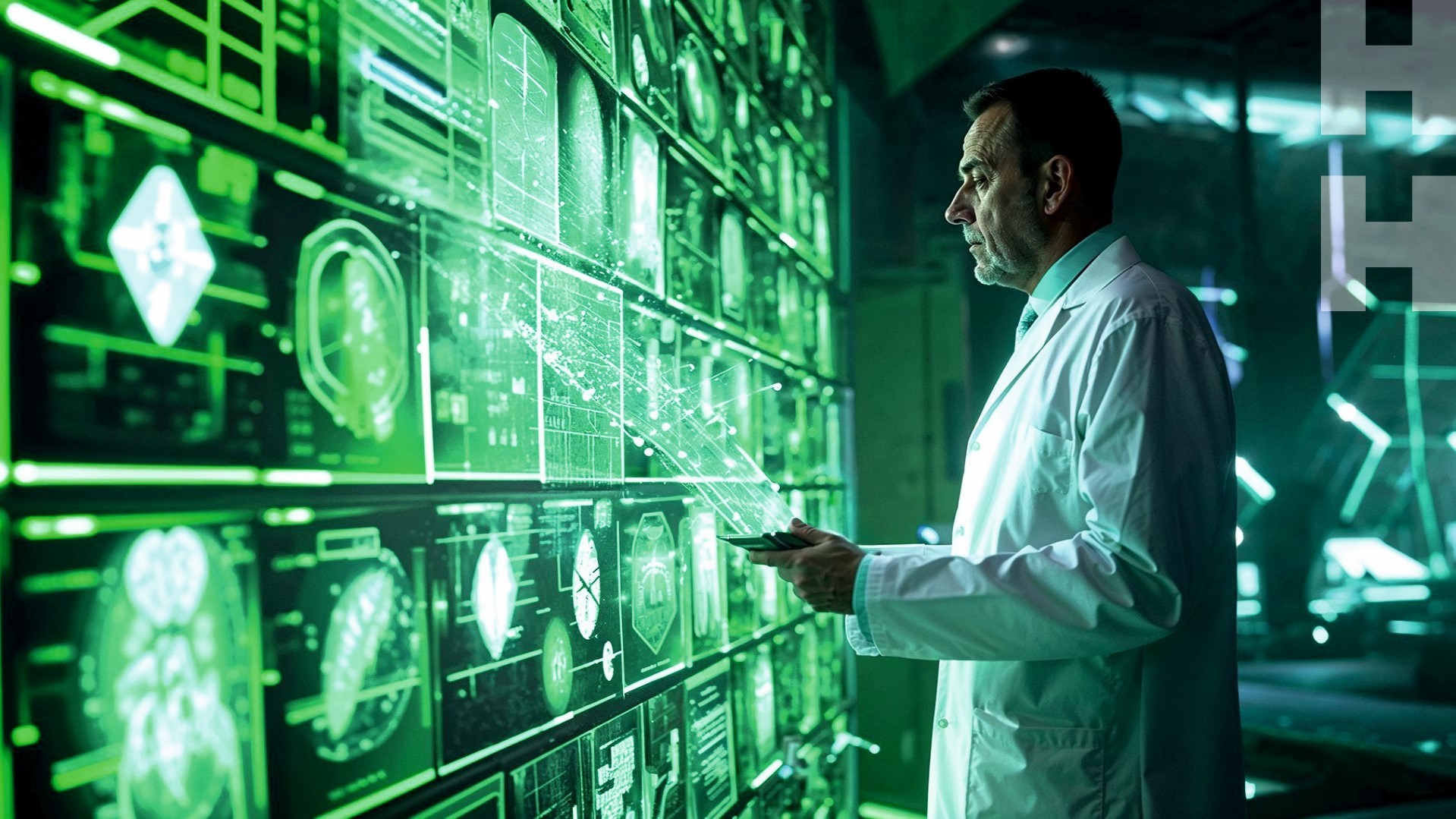
Image designed by AI, Concept of ESG and “green” medical technologies
Do we articulate and advocate enough the importance of ESG principles, or Green principles precisely – in our healthcare ecosystem, including healthcare providers and industry?
Sustainability is topic of high importance for Millenials and Generation Z. They are the doctors, the ingineers, the hospital managers and the patients of the future. And they show a growing sense of urgency and commitment on this topic, as well as the opportunity that we have to drive systemic change. Therefore, the real conversation about sustainability and ESG principles has just started and it reflects the need to act now.
According to NASA, the global average temperature has increased by about 1.2°C since the late 19th century. The World Economic Forum’s Global Risks Report identifies resource scarcity as a significant threat to global stability and economic development. The Intergovernmental Science-Policy Platform on Biodiversity and Ecosystem Services (IPBES) warns that up to one million species are at risk of extinction, with profound implications for ecosystems, human well-being, and the economy. The World Health Organization estimates that air pollution alone causes seven million premature deaths worldwide each year.
These are only a few of the challenges that humanity faces. Our need for to drive conversation and action in line with the ESG has never been higher.

Image designed by AI, Concept of ESG
Are we doing enough to educate public bodies in CEE region on green procurement principles; how can we compare our regional maturity of green and sustainable public procurement with Western EU countries?
We collaborate with local partners, governments, and industry associations to provide training, resources, and guidance on sustainable procurement practices. While regional maturity may vary compared to Western EU countries, there is significant potential for growth and improvement through knowledge sharing and collaboration.
Looking at the Central & Easter Europe in Philips, we are proud for transitioning to a circular economy in Czech Republic, with 20% of the components of our medical equipment being given a second life, we are a key contributor to the Green Hospital of the Future in Poland and we’ve partnered with the largest 5 medical NGOs in Romania to facilitate access to healthcare in 2023!
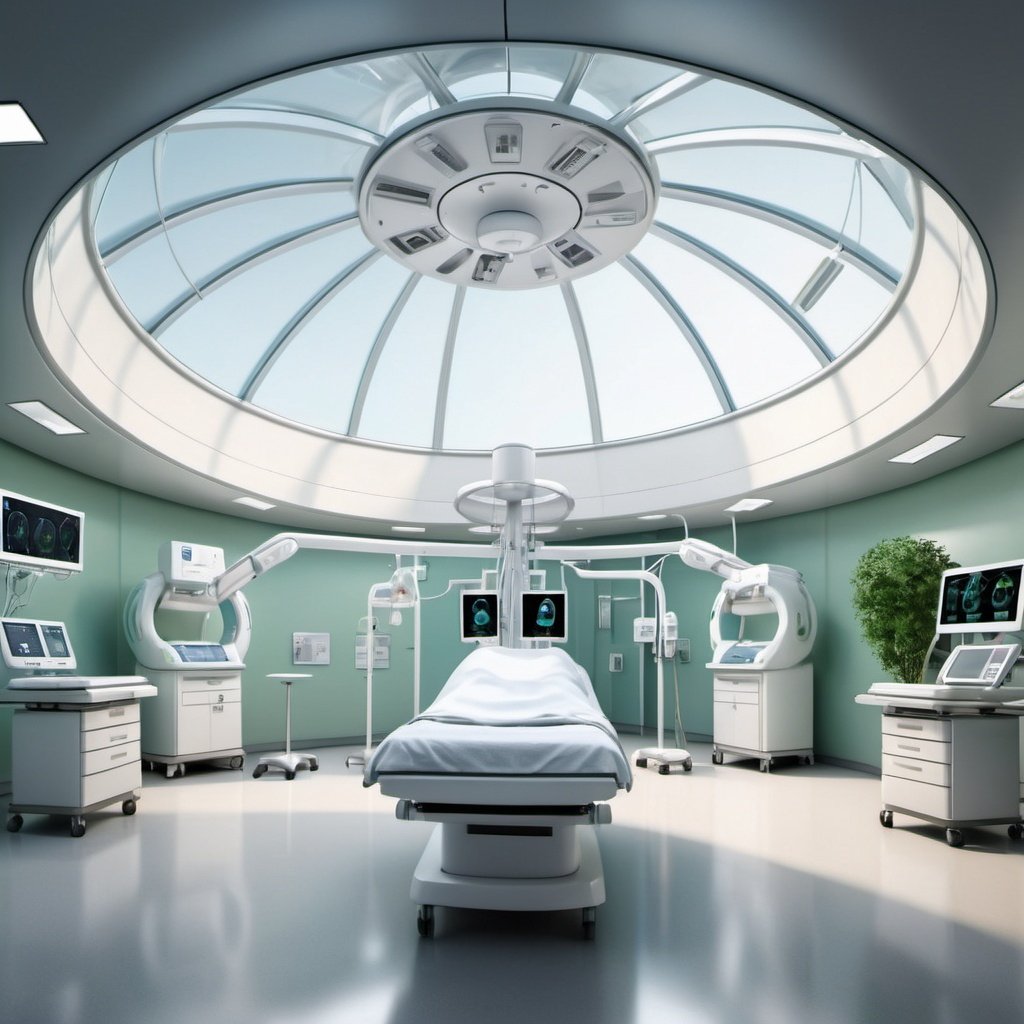
Image designed by AI, Concept of hospitals of the future
There is a strong need for regional (CEE) dialogue between many stakeholders related to green healthcare.
Hopefully deeper engagement on sustainable procurement and green hospital initiatives will folow so we can build more productive and resilient delivery of healthcare services, specially in postpandemic period for more efficient recovery. ,
Do you have some observations to add related to need for public – private partnerships in this field, specially after strong messages from Davos (WEF) and PHSSR?
“If you want to go fast, go alone. If you want to go far, go together.” Philips aims to be the partner of choice and trust for local health systems. Whether public or private, organizations bring unique skills and resources to the table, and complementary strengths make for smoother partnerships. By leveraging our expertise, resources, and networks of both sectors, we can accelerate the adoption of green practices and build more resilient healthcare systems.
